Matching skills Easy Worksheets for Ages 7-9
5 filtered results
-
From - To
Our "Matching Skills Easy Worksheets for Ages 7-9" provide a fun and educational way for children to enhance their cognitive abilities. Specifically designed for kids aged 7 to 9, these worksheets help develop critical skills such as visual discrimination, problem-solving, and logical thinking. Featuring colorful images and engaging exercises, these matching activities are perfect for keeping young learners motivated and challenged. Whether used at home or in the classroom, our easy worksheets serve as an excellent resource for reinforcing learning concepts and boosting confidence in a supportive environment. Explore our collection today to support your child's educational journey!
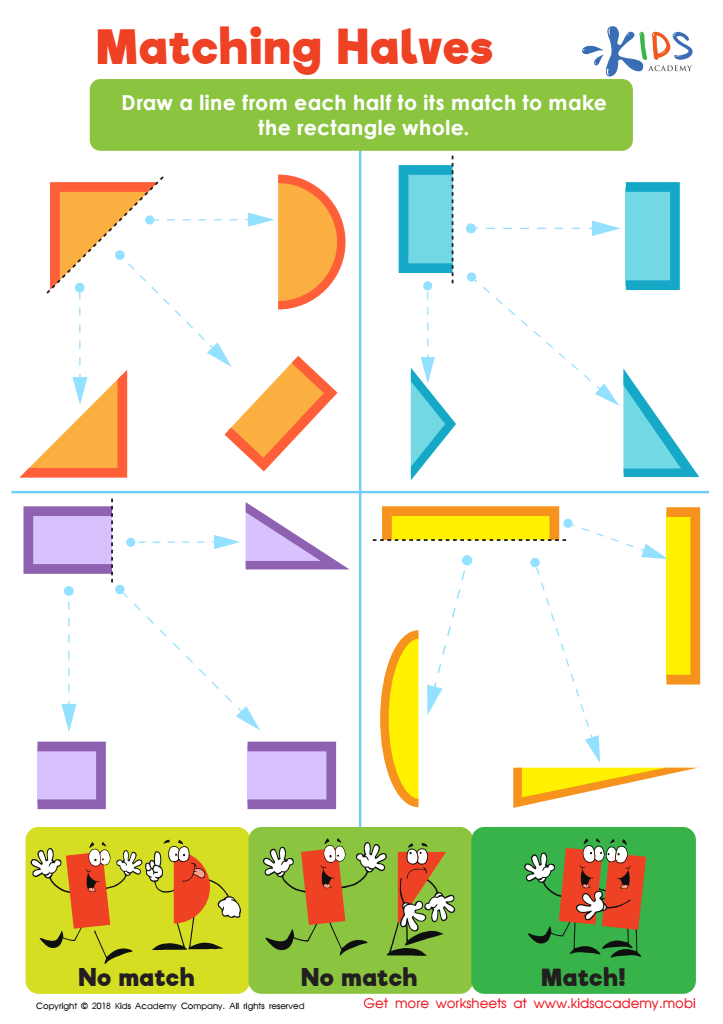

Matching Halves Worksheet
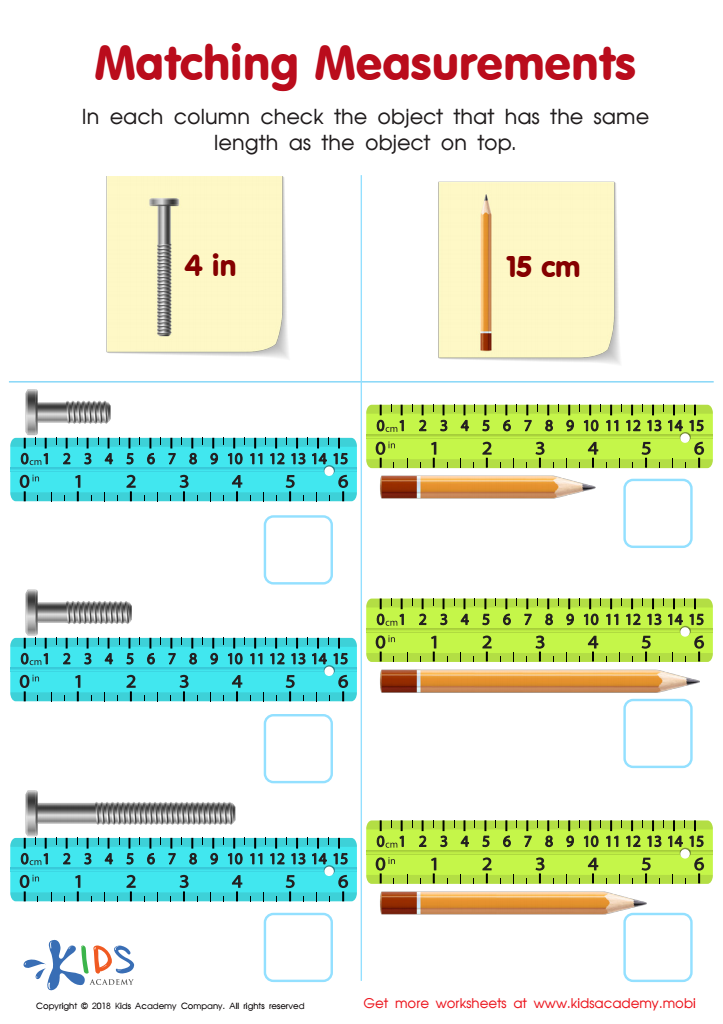

Matching Measurements Worksheet
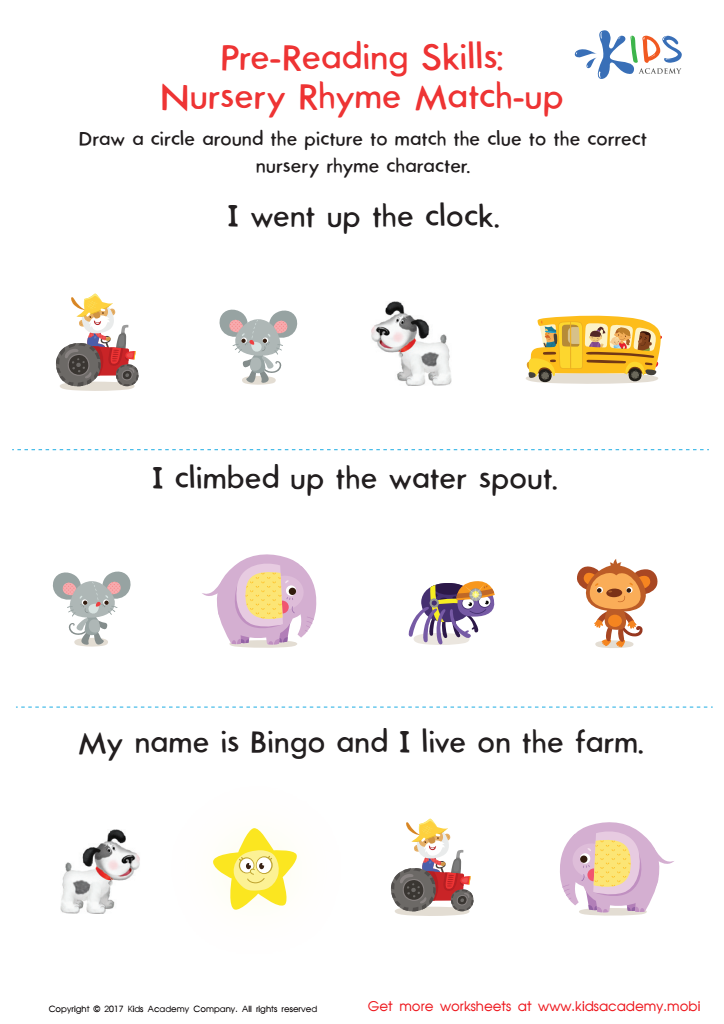

Nursery Rhyme Match–Up Worksheet
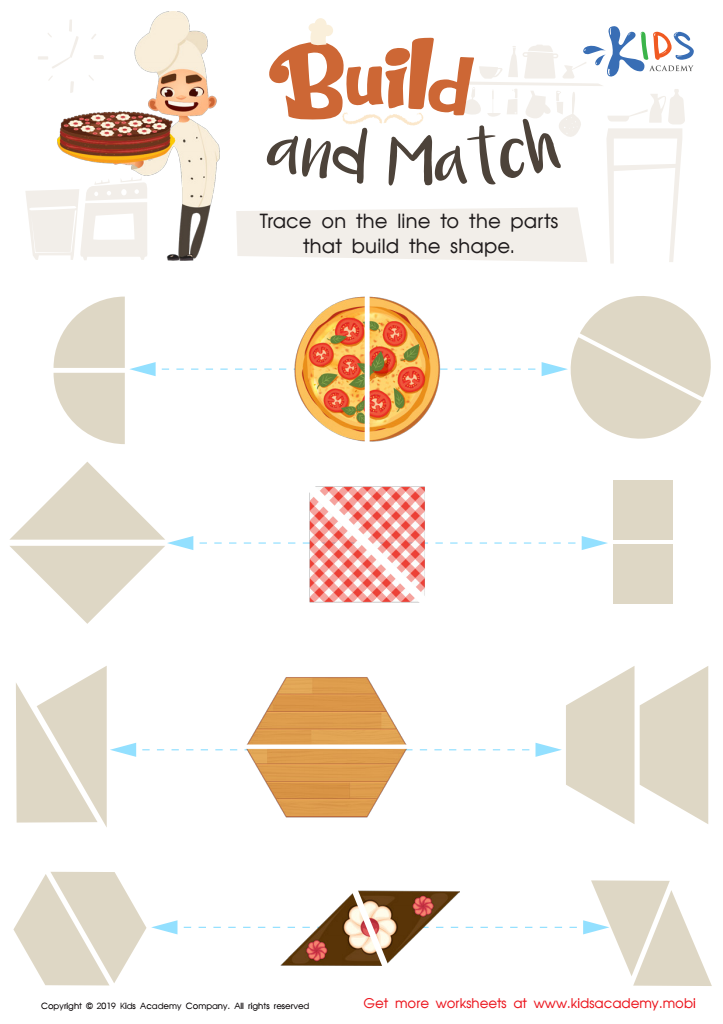

Build and Match Worksheet
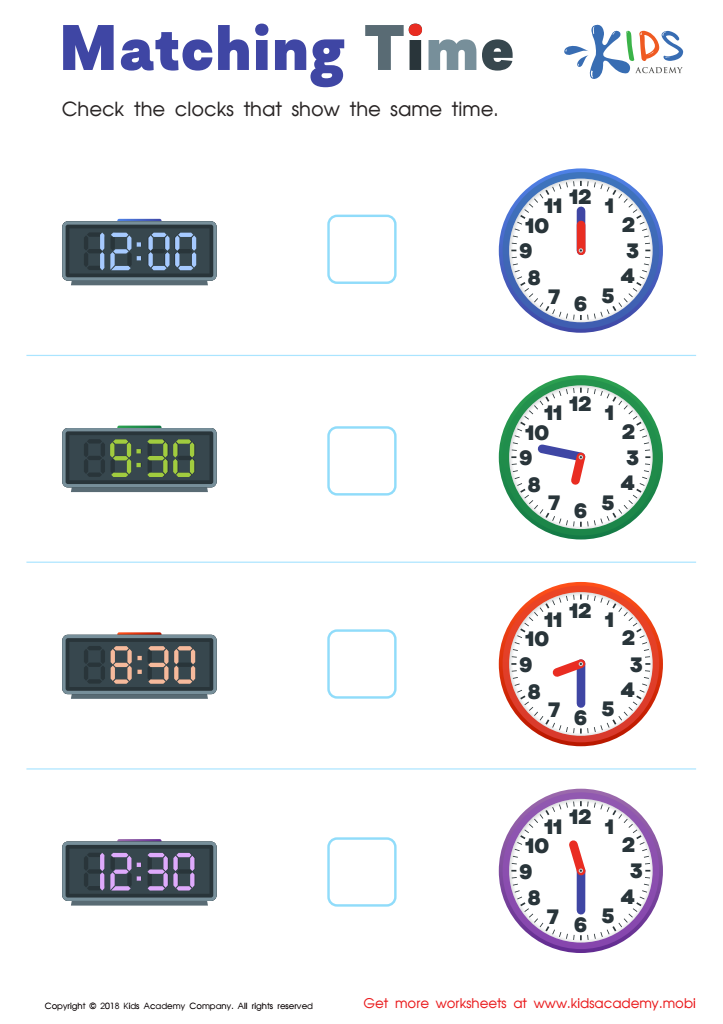

Matching Time Worksheet
Parents and teachers should prioritize developing matching skills in children ages 7-9 because these foundational competencies play a critical role in cognitive and academic development. Matching teaches kids to recognize patterns, similarities, and differences, which is essential for problem-solving and reasoning abilities. By engaging in matching activities, children enhance their memory, attention to detail, and organizational skills. These abilities directly contribute to success in subjects like math and reading, where pattern recognition and sorting are foundational.
Additionally, matching activities foster visual discrimination and fine motor coordination. For instance, when children match pictures, objects, or letters, they learn to notice subtle differences and improve hand-eye coordination. These skills are crucial for effective handwriting and navigating more complex academic tasks.
Emphasizing matching also supports language development. Through matching words with pictures or synonymous pairs, children expand their vocabulary and comprehension. Matching activities are often enjoyable and can be tailored to a child’s interests, making learning fun and engaging.
Supporting the development of matching skills instills confidence in children. As they master these tasks, they build a sense of achievement, motivating them to tackle more challenging problems with a positive attitude. Overall, matching activities lay a strong foundation for future academic success and critical cognitive growth.
 Assign to My Students
Assign to My Students


















